GENDER AND CULTURE
Carolyn G. Heilbrun and Nancy K. Miller, EDITORS
GENDER AND CULTURE
A SERIES OF COLUMBIA UNIVERSITY PRESS
Edited by Carolyn G. Heibrun and Nancy K. Miller
In Dora's Case: Freud, Hysteria, Feminism
Edited by Charles Bernheimer and Claire Kahane
Breaking the Chain: Women, Theory, and French Realist Fiction
Naomi Schor
Between Men: English Literature and Male Homosocial Desire
Eve Kosofsky Sedgwick
Romantic Imprisonment: Women and Other Glorified Outcasts
Nina Auerbach
The Poetics of Gender
Edited by Nancy K. Miller
Reading Woman: Essays in Feminist Criticism
Mary Jacobus
Honey-Mad Women: Emancipatory Strategies in Women's Writing
Patricia Yaeger
Subject to Change: Reading Feminist Writing
Nancy K. Miller
Thinking Through the Body
Jane Gallop
Dialogic and Difference: "An/Other Woman" in Virginia Woolf and Christa Wolf
Anne Herrmann
Plotting Women: Gender and Representation in Mexico
Jean Franco
Inspiriting Influences: Tradition, Revision, and Afro-American Women's Novels
Michael Awkward
Hamlet's Mother and Other Women
Carolyn G. Heilbrun
Rape and Representation
Edited by Lynn A. Higgins and Brenda R. Silver
Shifting Scenes: Interviews on Women, Writing, and Politics in Post-68 France
Edited by Alice A. Jardine and Anne M. Menke
Tender Geographies: Women and the Origins of the Novel in France
Joan Dejean
Modern Feminisms: Political, Literary, Cultural
Maggie Humm
Unbecoming Women: British Women Writers and the Novel of Development
Susan Fraiman
The Apparitional Lesbian: Female Homosexuality and Modern Culture
Terry Castle
George Sand and Idealism
Naomi Schor
Becoming a Heroine: Reading About Women in Novels
Rachel M. Brownstein
Nomadic Subjects: Embodiment and Sexual Difference in Contemporary Feminist Theory
Rosi Braidotti
Engaging with Irigaray: Feminist Philosophy and Modern European Thought
Edited by Carolyn Burke, Naomi Schor, and Margaret Whitford
A Certain Age: Reflecting on Menopause
Edited by Joanna Goldsworthy
Mothers in Law: Feminist Theory and the Legal Regulation of Motherhood
Edited by Martha Albertson Fineman and Isabelle Karpin
Revised Edition
JOAN WALLACH SCOTT




FOR ELIZABETH


 ender" was a controversial term at the United Nations Fourth World Conference on Women held in Beijing, China in the fall of 1995. In the weeks before the meeting convened, a subcommittee of the U.S. House of Representatives held hearings at which Republican congressmen and delegates from right-to-life groups pointed to the subversive implications of "gender."1 The speakers warned that morality and family values were under attack by those who believed that there might be as many as five genders (men, women, homosexuals, bisexuals, and transsexuals). And they insisted that the UN program for the Beijing Conference had been hijacked by "gender feminists, who believe that everything we think of as natural, including manhood and womanhood, femininity and masculinity, motherhood and fatherhood, heterosexuality, marriage and family, are only culturally created `fixes,' originated by men to oppress women. These feminists profess that such roles have been socially constructed and are therefore subject to change."2 Within the UN, the controversy was such that the Commission on the Status of Women had earlier set up a contact group to seek agreement on "the commonly understood meaning of `gender,"' and to convey its conclusions "directly to the Conference in Beijing." Disagreement between those who insisted on a strictly biological definition and those who wanted to refer to the "socially constructive [sic] roles of men and women"3 led to an entirely uninformative resolution, which was nonetheless offered as an appendix to the Program of Action of the conference. The "Statement on the Commonly Understood Meaning of the Term `Gender"' reads as follows:
ender" was a controversial term at the United Nations Fourth World Conference on Women held in Beijing, China in the fall of 1995. In the weeks before the meeting convened, a subcommittee of the U.S. House of Representatives held hearings at which Republican congressmen and delegates from right-to-life groups pointed to the subversive implications of "gender."1 The speakers warned that morality and family values were under attack by those who believed that there might be as many as five genders (men, women, homosexuals, bisexuals, and transsexuals). And they insisted that the UN program for the Beijing Conference had been hijacked by "gender feminists, who believe that everything we think of as natural, including manhood and womanhood, femininity and masculinity, motherhood and fatherhood, heterosexuality, marriage and family, are only culturally created `fixes,' originated by men to oppress women. These feminists profess that such roles have been socially constructed and are therefore subject to change."2 Within the UN, the controversy was such that the Commission on the Status of Women had earlier set up a contact group to seek agreement on "the commonly understood meaning of `gender,"' and to convey its conclusions "directly to the Conference in Beijing." Disagreement between those who insisted on a strictly biological definition and those who wanted to refer to the "socially constructive [sic] roles of men and women"3 led to an entirely uninformative resolution, which was nonetheless offered as an appendix to the Program of Action of the conference. The "Statement on the Commonly Understood Meaning of the Term `Gender"' reads as follows:
Having considered the issue thoroughly, the contact group noted that (1) the word "gender" had been commonly used and understood in its ordinary, generally accepted usage in numerous other United Nations forums and conferences; (z) there was no indication that any new meaning or connotation of the term, different from accepted prior usage, was intended in the Platform for Action.... Accordingly, the contact group reaffirmed that the word "gender" as used in the Platform for Action was intended to be interpreted and understood as it was in ordinary, generally accepted usage.4
What is striking about this attempt at clarification is that there is no explication of "generally accepted usage." It was as if the meaning were self-evident, free of ambiguity and all possible misinterpretation. The wording of the statement attempts to settle controversy by denying that it exists. Still, some participants at the conference felt pressed to spell out their understanding of the term. The representative of Guatemala, for example, wrote that "in conformity with the ethical, moral, legal, cultural and natural criteria of the Guatemalan people, Guatemala interprets the concept of gender solely as female and male gender in reference to women and men."5 A similar statement came from Paraguay. Peru took matters further, anticipating the dangerous implications "gender" seemed to have by insisting that "sexual rights refer solely to heterosexual relationships."6 And the representative of the Vatican interpreted the common meaning of "gender" as "grounded in biological sexual identity, male or female."7 "The Holy See thus excludes dubious interpretations based on world views which assert that sexual identity can be adapted indefinitely to suit new and different purposes." Not that biology determined sex roles statically. The Pope was all in favor of "a certain diversity of roles ... provided that this diversity is not the result of an arbitrary imposition, but is rather an expression of what is specific to being male and female."8

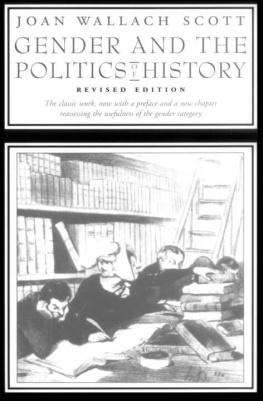
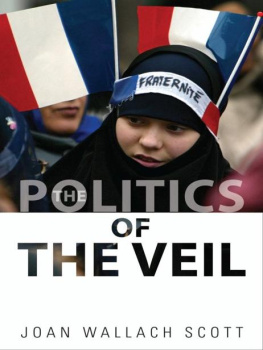
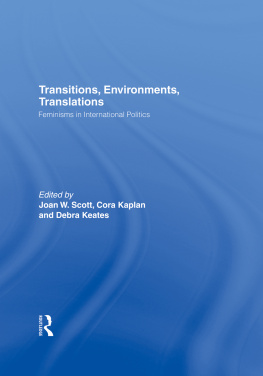

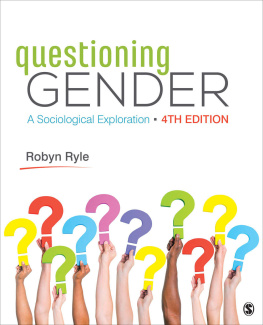
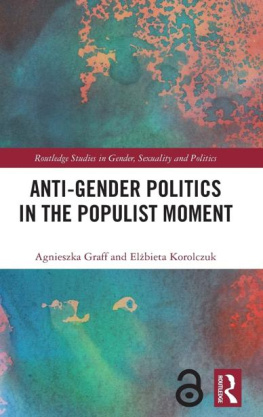

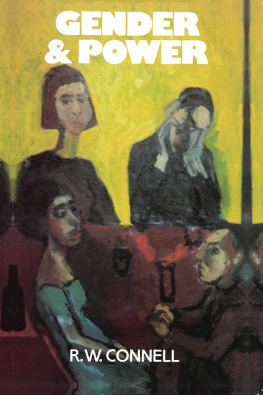
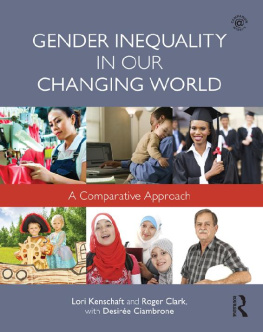
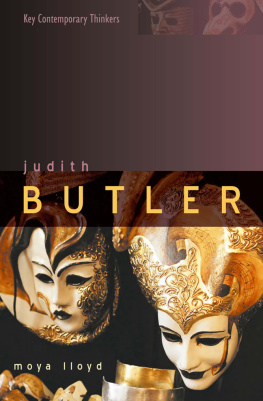
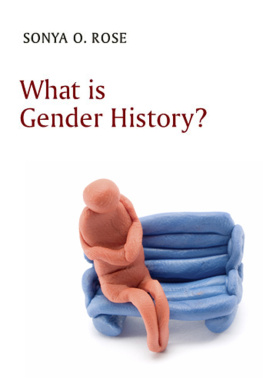
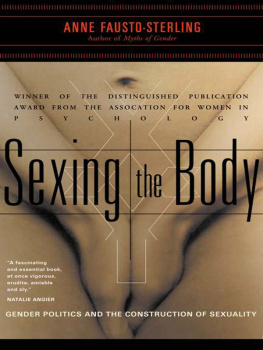
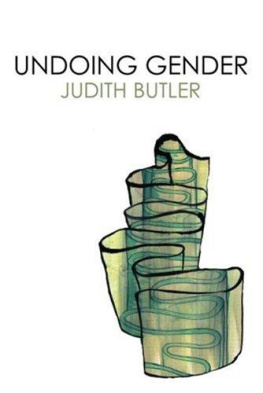
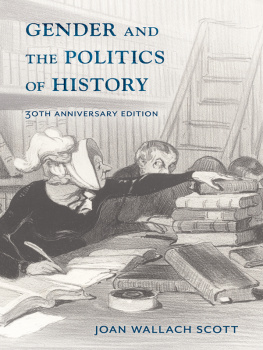





 ender" was a controversial term at the United Nations Fourth World Conference on Women held in Beijing, China in the fall of 1995. In the weeks before the meeting convened, a subcommittee of the U.S. House of Representatives held hearings at which Republican congressmen and delegates from right-to-life groups pointed to the subversive implications of "gender."1 The speakers warned that morality and family values were under attack by those who believed that there might be as many as five genders (men, women, homosexuals, bisexuals, and transsexuals). And they insisted that the UN program for the Beijing Conference had been hijacked by "gender feminists, who believe that everything we think of as natural, including manhood and womanhood, femininity and masculinity, motherhood and fatherhood, heterosexuality, marriage and family, are only culturally created `fixes,' originated by men to oppress women. These feminists profess that such roles have been socially constructed and are therefore subject to change."2 Within the UN, the controversy was such that the Commission on the Status of Women had earlier set up a contact group to seek agreement on "the commonly understood meaning of `gender,"' and to convey its conclusions "directly to the Conference in Beijing." Disagreement between those who insisted on a strictly biological definition and those who wanted to refer to the "socially constructive [sic] roles of men and women"3 led to an entirely uninformative resolution, which was nonetheless offered as an appendix to the Program of Action of the conference. The "Statement on the Commonly Understood Meaning of the Term `Gender"' reads as follows:
ender" was a controversial term at the United Nations Fourth World Conference on Women held in Beijing, China in the fall of 1995. In the weeks before the meeting convened, a subcommittee of the U.S. House of Representatives held hearings at which Republican congressmen and delegates from right-to-life groups pointed to the subversive implications of "gender."1 The speakers warned that morality and family values were under attack by those who believed that there might be as many as five genders (men, women, homosexuals, bisexuals, and transsexuals). And they insisted that the UN program for the Beijing Conference had been hijacked by "gender feminists, who believe that everything we think of as natural, including manhood and womanhood, femininity and masculinity, motherhood and fatherhood, heterosexuality, marriage and family, are only culturally created `fixes,' originated by men to oppress women. These feminists profess that such roles have been socially constructed and are therefore subject to change."2 Within the UN, the controversy was such that the Commission on the Status of Women had earlier set up a contact group to seek agreement on "the commonly understood meaning of `gender,"' and to convey its conclusions "directly to the Conference in Beijing." Disagreement between those who insisted on a strictly biological definition and those who wanted to refer to the "socially constructive [sic] roles of men and women"3 led to an entirely uninformative resolution, which was nonetheless offered as an appendix to the Program of Action of the conference. The "Statement on the Commonly Understood Meaning of the Term `Gender"' reads as follows: